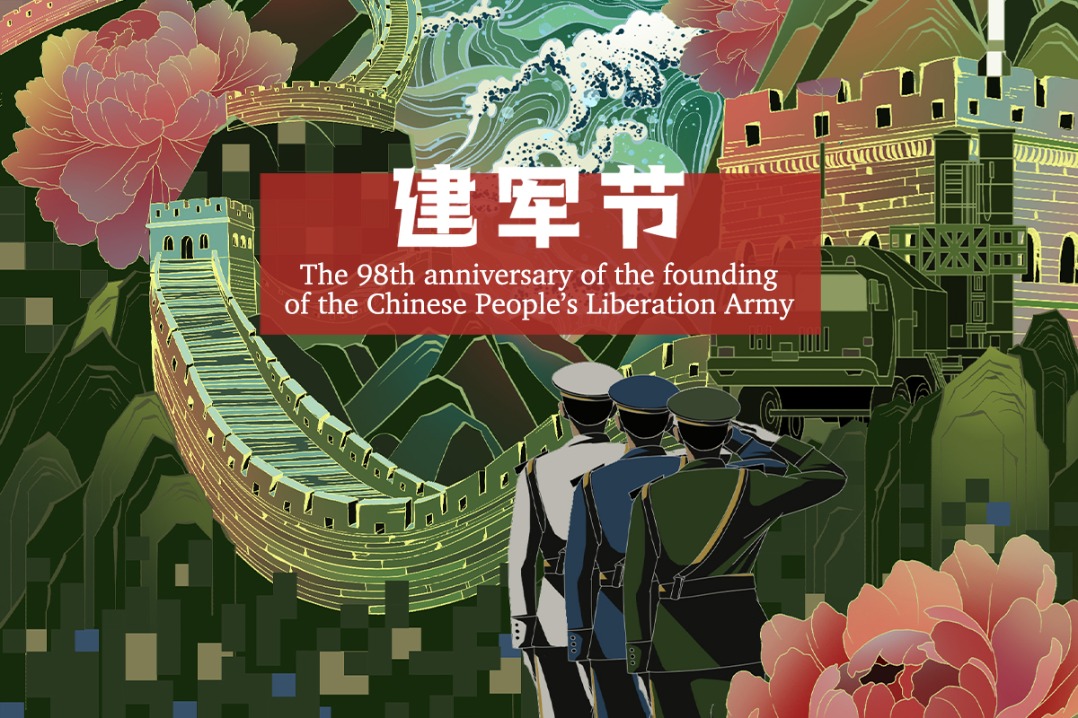Foreigners help keep Kung Fu alive and kicking
Hong Kong remains hub for learning, teaching traditional Chinese martial arts


In search of the master
Paul Brennan, aged in his 60s, is another Australian who came to Hong Kong to follow his martial arts dreams. He is dedicated to a niche martial art from southern China called Chow Gar Tong Long, which emulates the movements of the praying mantis.
Brennan's Tong Long journey began in the 1970s when he enrolled in a martial arts class, after previously studying South Korean Taekwondo and Japanese judo.
He said unlike the two other martial arts, Tong Long gave him a profound sense of inner calm. "The feeling was amazing," Brennan said.
He continued practicing the martial art and later learned about an esteemed Tung Lung master named Ip Shui living in Hong Kong, whom he was determined to study under.
At that time, Brennan was living in Mt Isa, an Australian mining town. He worked several jobs for three years until late 1991, when he had saved enough money to move to Hong Kong.
However, with no internet or mobile phones back then, locating Master Ip in an unfamiliar city proved difficult. After two months of visiting martial arts schools and making inquiries, Brennan finally discovered Master Ip's whereabouts.
They arranged to meet, but Brennan was worried the master might not accept him as a student. "I came to Hong Kong just for him. If he had rejected me, it would have shattered my life," he said.
Master Ip, who couldn't speak English, relied on his family to communicate with Brennan. After listening to the Australian's story, the master told him that he had retired and was no longer taking new students.
Brennan refused to take no for an answer. He showed the master a sleeping bag he carried at all times and declared: "If you don't accept me, I will sleep on your doorstep. Every morning when you step outside, I will be there, saying 'good morning' until you accept me."
Master Ip chuckled and replied, "all right, you can come."
Brennan settled down in Hong Kong.
He landed a job as a bartender in Tsim Sha Tsui, which gave him more time to practice Tong Long during the day.
Brennan swiftly became aware of the exceptional precision inherent in the techniques shared by the master. However, the language barrier between the two had to be overcome. "Taking classes was like a chicken talking to a duck," Brennan said.
To overcome this obstacle, he wrote down all his inquiries and sought assistance from classmates and also tried his best to learn Cantonese.
Life in Hong Kong was not easy for Brennan. He earned a small salary but needed to support himself and his family in Australia.
"I was willing to endure all hardships. I knew one day I would return to Australia, so I devoted 100 percent of my energy to practicing Tong Long, cherishing every second I spent in Hong Kong, leaving no excuses," he said.
After five years, Brennan left the city and returned to Australia for family reasons.
He found many local martial arts schools that taught Tong Long incorrectly, so he established his own school in his hometown of Brisbane. Every year he returns to Hong Kong and stays for several months to further his study of Tong Long.
Brennan is now fluent in Cantonese and knows numerous classical Chinese names of martial arts techniques.
"In martial arts, language carries a profound cultural significance, with multiple layers of meaning. Each layer of the meaning holds insights that can be traced back thousands of years," he said.
Since founding his school, Brennan has taught thousands of students, but he added that most do not persist with the training. Concerned about the possible disappearance of traditional Chinese martial arts, Brennan has in recent years dedicated himself to helping preserve it by writing books, translating material, and recording videos.
"Chinese martial arts are a real gem, a precious treasure. It would be a great pity if future generations miss out on experiencing their beauty," Brennan said.
Learning martial arts can be painful and arduous. But enduring such challenges can cultivate calmness, understanding, and empathy, and foster a balanced character. "Chinese martial arts make people better," Brennan said, vowing to continue promoting the Chinese tradition.























